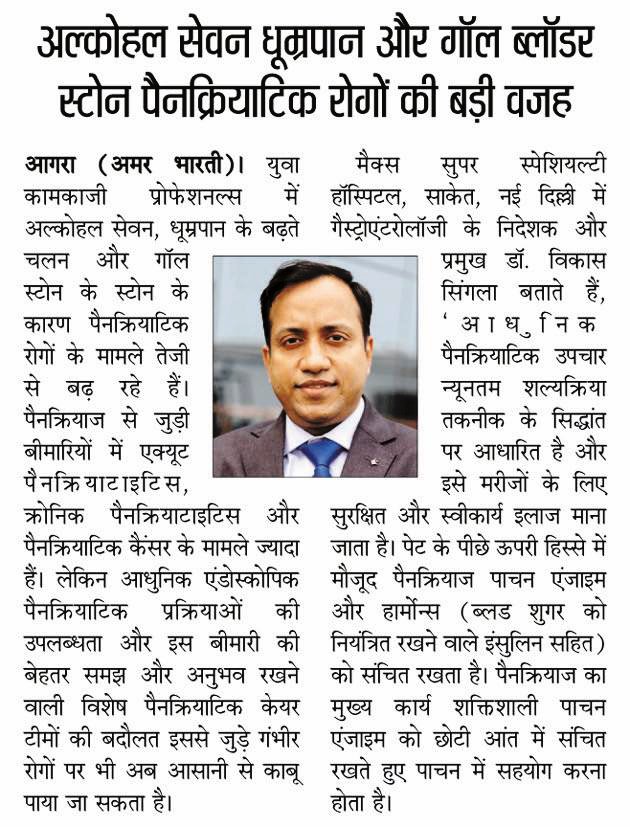KNOW YOUR DOCTOR
Dr Vikas Singla, Founder, of Gastron is the renowned name across the country and the world, in the field of endoscopy and the gastroenterology……….
publications
Singla V, Agarwal R, Anikhindi SA, et al. Role of EUS-FNA for gallbladder mass lesions with biliary obstruction: a large single-center experience.
lectures
Role of EUS in pancreatic and biliary diseases, Endoscopic conference organized by Apollo Hospital, Kolkata 2011
Prizes
1st Prize, video presentation, ENDOCON, SGEI, 2019
2nd prize in asia cup, APDW 2019
Camp
Circular dated 15-03-2020 : Awareness Camp For Liver Diseases & Weight Loss on 15-03-20, Sunday from 11 am to 4 pm at Delhi Gastro Liver and Obesity Centre


